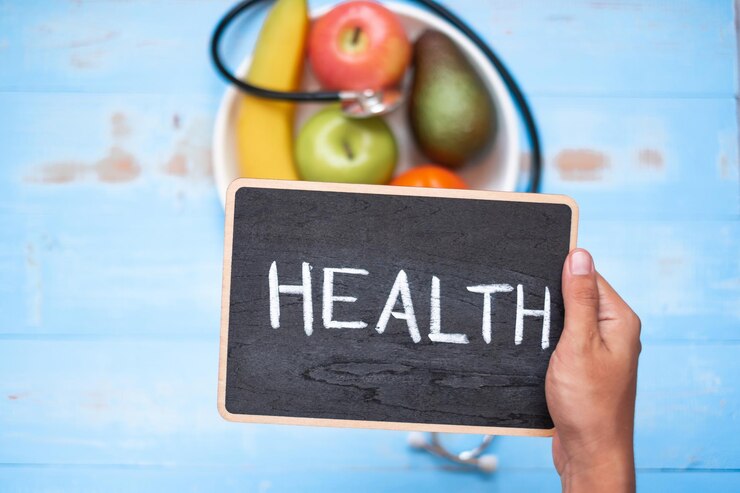
In today's digital age, social media platforms have become a primary source of information for many individuals seeking health and dietary advice. While these platforms offer a plethora of insights and tips, they are also breeding grounds for misinformation and myths, especially when it comes to health and food. Amidst the sea of wellness influencers and self-proclaimed nutrition experts, it's crucial to differentiate between evidence-based knowledge and trendy fads.
Table of Content:-
Health and Food Misconceptions Social Media Wants Us to Believe
Here are some prevalent myths that social media often perpetuates and uncover the truth behind them.
1. Carbs are the enemy
One of the most pervasive myths perpetuated on social media is the demonisation of carbohydrates. While low-carb diets have gained popularity for weight loss, not all carbs are created equal. Carbohydrates are the body's primary source of energy, essential for optimal brain function and physical performance. The key lies in choosing complex carbohydrates such as whole grains, fruits, and vegetables over refined carbs like white bread and sugary snacks. Moderation and balance are key when it comes to carbohydrate consumption, rather than complete avoidance.
2. Detox diets cleanse your body of toxins
Detox diets often promise to rid the body of toxins, boost metabolism, and promote weight loss. However, the concept of detoxing through specific diets or supplements lacks scientific evidence. The human body has its built-in detoxification system, primarily the liver and kidneys, which efficiently eliminate toxins. Instead of restrictive detox diets, focus on consuming a varied diet rich in fruits, vegetables, lean proteins, and plenty of water to support your body's natural detox processes.

Also Read: New Heart Attack Risk Found: Can This B Vitamin Be a Trigger? Know From Expert
3. All fats are unhealthy
The fear of fats has been ingrained in many due to misconceptions perpetuated by social media. While excessive consumption of saturated and trans fats can increase the risk of heart disease, unsaturated fats such as those found in nuts, seeds, avocados, and olive oil are beneficial for heart health. These fats provide essential fatty acids and aid in the absorption of fat-soluble vitamins. Including healthy fats in your diet in moderation can actually be beneficial for overall health.
4. Gluten-free means healthier
Gluten-free diets have gained traction as a perceived solution for various health issues, despite being necessary only for individuals with celiac disease or gluten sensitivity. For the general population, eliminating gluten unnecessarily may lead to nutrient deficiencies and an over-reliance on processed gluten-free products, which can be high in sugar and unhealthy fats. Unless medically required, there's no inherent health benefit to going gluten-free.

5. Natural sweeteners are better than sugar
With the growing concern over the health effects of sugar, many turn to natural sweeteners like honey, maple syrup, or agave nectar as healthier alternatives. While these sweeteners may offer slightly more nutrients than refined sugar, they still contribute to calorie intake and can spike blood sugar levels. Moderation is key when using any sweetener, whether natural or refined.
6. Skipping meals aids weight loss
The trend of intermittent fasting and skipping meals in the name of weight loss has gained popularity on social media. While intermittent fasting may have some benefits for certain individuals, skipping meals regularly can lead to nutrient deficiencies, decreased energy levels, and disruptions in metabolism. Instead of skipping meals, focus on balanced, portion-controlled meals and snacks throughout the day to support your body's needs.
7. Supplements can replace a healthy diet
Social media often promotes various supplements as miracle solutions for weight loss, muscle gain, and overall health. While certain supplements may be beneficial for individuals with specific deficiencies or dietary restrictions, they should not be used as a substitute for a balanced diet. Whole foods provide a wide array of nutrients and phytochemicals that work synergistically for optimal health, which cannot be replicated by supplements alone.
Bottomline
While social media can be a valuable source of health and dietary information, it's essential to critically evaluate the accuracy and reliability of the content shared. By questioning myths and seeking evidence-based information, we can make informed choices that support our overall health and well-being. Remember, the key to a healthy lifestyle lies in moderation, balance, and a focus on whole, nutrient-dense foods.
Also watch this video
How we keep this article up to date:
We work with experts and keep a close eye on the latest in health and wellness. Whenever there is a new research or helpful information, we update our articles with accurate and useful advice.
Current Version